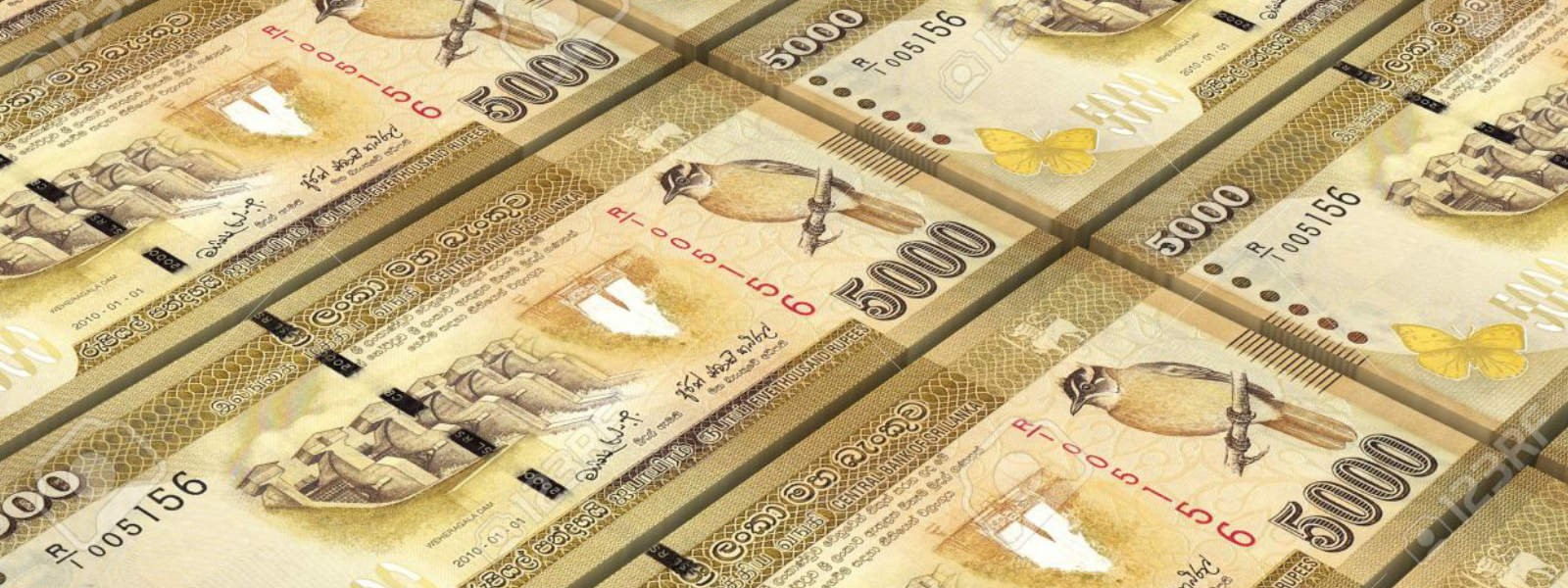.webp)

Tears & Profits: Billions in profits off people's essentials
COLOMBO (News 1st); Startling revelations surfaced in Parliament regarding the exorbitant profits reaped by a select few businessmen who imported B onions over the past year.
Shockingly, it has come to light that these individuals have amassed profits exceeding Rs. 80 Billion.
It has been disclosed that the unlawful profit margin for a mere kilogram of onions stands at a staggering four thousand rupees.
Opposition MP Patali Champika Ranawaka, who chairs the Committee on Ways and Means delivered a significant update to the Parliament by presenting the second report committee.
This report has unveiled startling revelations concerning the substantial profits amassed by businessmen involved in the importation of essential commodities such as B onions, potatoes, dried sprats, Maldives fish, and mung beans over the past two years.
"A kilogram of B Onions that reach the Port of Colombo for Rs. 92/- are sold in Orugodawatte for Rs. 365/-. When it reaches the market in Meepe, the price is Rs. 500/-. At the retail shop the price goes up to Rs. 700/-. The B Onion importers, and the businessmen, have made Rs. 80 Billion in profits. That means an unlawful profits of Rs. 4,000/- from every single citizen. They made Rs. 15 Billion from potatoes, another Rs. 15 Billion from dried sprats, as unlawful profits. Have they paid their taxes? If not, where are these proceeds? The parliament must look into this," said the MP in parliament.
What Revelations Were Made by the Report Prepared By The Committee on Ways and Means?
B-Onions:
In 2022, considering insurance, freight charges, and import taxes, a kilogram of B onions, originally priced at 103 rupees upon unloading from the port, fetched a selling price of 213 rupees in the Colombo market.
This translated to a substantial profit of 109 rupees per kilogram, representing a remarkable profit margin exceeding 105 percent.
Similarly, in 2023, selling B onions at 92 rupees per kilogram from the port and subsequently selling them for 365 rupees in the market resulted in an impressive profit of 273 rupees per kilogram.
This staggering profit margin surpassed 297 percent.
Potatoes:
As per the findings of the second report of the Committee on Ways and Means, significant profits have been recorded in the potato trade.
In 2022, potatoes acquired at 96 rupees per kilogram upon landing at the port were later sold for 215 rupees per kilogram in the Colombo market, yielding a substantial profit of 119 rupees per kilogram.
This equates to a remarkable 124 percent.
Moving into 2023, the profit margin slightly decreased, with each kilogram of potatoes fetching a profit of 93 rupees.
Dried Sprats:
In 2022, Dried Sprats, procured at 520 rupees per kilogram upon arrival at the port, commanded a selling price of 1,541 rupees in the bustling Colombo market.
This resulted in numerous businessmen securing a profit of 1,021 rupees per kilogram.
Similarly, in 2023, Dried Sprats acquired at 496 rupees per kilogram at the port was subsequently sold for 1307.50 rupees, yielding a profit of 811.50 rupees per kilogram.
This notable profit margin reflects a gain of 164 percent.
Mung Beans:
In 2022, a profit margin of 520 rupees per kilogram of mung beans was achieved.
Subsequently, in 2023, the profit margin increased significantly to 848 rupees per kilogram.
Maldives Fish:
According to the report from the Committee on Ways and Means, in 2022, a substantial profit of 2,067 rupees per kilogram was garnered from Maldives Fish.
This profit was realized by selling one kilogram of Maldives Fish, procured at 903 rupees upon arrival at the port, for 2,970 rupees in the Colombo market.
Similarly, in 2023, a profit of 2,319 rupees per kilogram was earned from Maldives Fish.
If the primary objective of a business is to generate profit, then what is the flaw with achieving this profit?
The Committee on Ways and Means highlights the significant profits amassed by various individuals from these commodities.
The committee's report underscores a considerable disparity between the costs incurred per kilogram at the point of unloading from the port and the subsequent selling price in the market.
This disparity encompasses various factors such as the Special Commodity Levy, insurance, and freight charges.
Based on this observed gap, profits ranging from 100 to 1000 rupees have been recorded, yet consumers have not experienced any corresponding benefits from the decrease in the value of the dollar during the last quarter of 2023.
Other Articles
Featured News





.png )



-820726_550x300.jpg)
-820720_550x300.jpg)
-820714_550x300.jpg)





-819380_550x300.jpg)


-812087_550x300.jpg)
-810262_550x300.jpg)








.webp)






